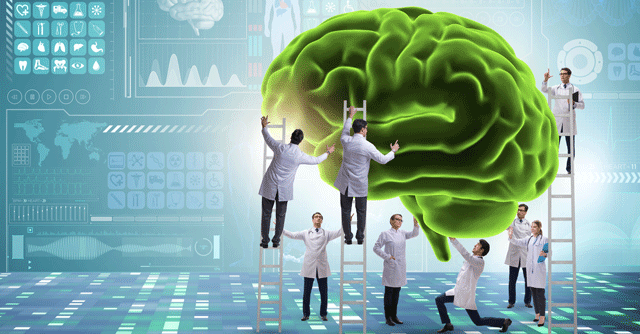
Research shows cure for depression, anxiety with AI controlled electrical brain stimulation


Researchers at the University of Minnesota Medical School, in partnership with the Massachusetts General Hospital, have successfully conducted a pilot study that can lead to a potential medical breakthrough for myriad mental ailments.
Published in the Nature Biomedical Engineering journal, the researchers found that it was possible to control specific parts of the brain with strategically delivered electric shocks – based on an AI algorithm gauging behavioural discrepancies among patients of epilepsy.
According to the study, the breakthrough can help relieve patients who suffer from cases of clinical depression and severe anxiety, subject to a successful clinical trial phase.

Authors of the study include Alik Widge, assistant professor of psychiatry at the University of Minnesota and member of the Medical Discovery Team on Addiction, and epilepsy research expert Sydney Cash and clinical brain stimulation expert Darin Dougherty from the Massachusetts General Hospital.
The study was conducted on a set of 12 patients that were undergoing brain surgery for epilepsy.
During the study, the researchers stimulated the internal capsule of the brain by using small and strategically timed electrical pulses.

This part of the brain, as the study says, is the central controller for cognitive control in humans.
In simpler words, the internal capsule is responsible for what is typically known as ‘distraction’ – an act that allows individuals with normal brain function to shift their behaviour or thoughts from one to another.
This, the research states, is key in treating mental ailments, as it enables a human being to recover from a particular emotion – or ‘move on’, in common parlance.

Lack of proper functioning in the internal capsule of the brain is deemed responsible for individuals suffering from clinical depression and severe cases of anxiety, among other mental illnesses.
To tackle this, the researchers used artificial intelligence to develop algorithms that helped them track changes to the cognitive (or brain) activity in the aforementioned internal capsule, after being treated with small electrical charges.
The algorithms could then track the type of changes that would occur to a patient’s brain post the electrical charge, and based on learnings behind these changes (as tracked by the AI algorithm), further electrical charges would be issued.

As the researchers have showcased, the study is the first one-of-its-kind to show that a brain activity region, which has been linked with a mental function before, can actually be enhanced using an electrical charge in a controlled and studied manner.
The study has also helped the researchers further see into specific areas within the internal capsule, which are responsible for specific cognitive behaviours.
Thanks to the AI algorithms here, this can help further diversify the scope of this study in order to treat mental ailments of varying nature.

The researchers further stated that the closed loop AI system built by the scientists here have proved to be significantly more effective in terms of the efficiency of the mental treatment – instead of a randomly timed electrical stimulation process.
“An example might include a person with depression who just can't get out of a 'stuck' negative thought. Because it is so central to mental illness, finding a way to improve it could be a powerful new way to treat those illnesses.
(The study) could be a totally new approach in treating mental illness. Instead of trying to suppress symptoms, we could give patients a tool that lets them take control of their own minds. We could put them back in the driver's seat and let them feel a new sense of agency,” said Widge in the study’s published journal report.

Dougherty, one of the co-authors of the study, added, “We are now in a position to conduct clinical trials to further demonstrate effectiveness and then hopefully move to helping treatment-resistant patients who are in desperate need for additional interventions to treat their illnesses.”
The researchers are now in process of setting up a clinical trial based on the study, and claim that a transition to from trial to medical practice can be potentially rapid – given that all requisite technology for the treatment is already in place.
